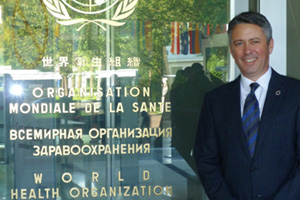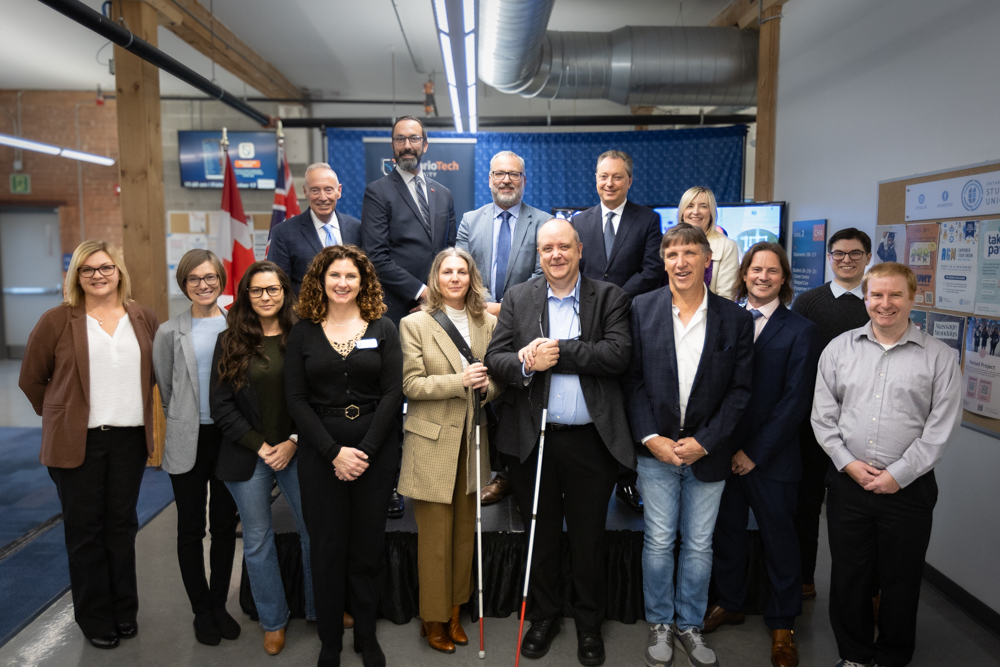UOIT researcher applauds WHO resolution on disability action plan
June 4, 2014

Dr. Pierre Côté, Canada Research Chair in Disability Prevention and Rehabilitation at the University of Ontario Institute of Technology (UOIT), is endorsing an international initiative to champion better health for all people with disability.
The epidemiologist and Associate Professor in UOIT’s Faculty of Health Sciences attended the World Health Organization’s (WHO) 67th World Health Assembly in Geneva, Switzerland May 19 to 22. In an historic move, the World Health Assembly adopted a resolution endorsing the WHO global disability action plan 2014–2021.
The WHO plan has three objectives:
- Remove barriers and improve access to health services and programs.
- Strengthen and extend rehabilitation, habilitation, assistive technology, assistance and support services, and community-based rehabilitation.
- Strengthen collection of relevant and internationally comparable data on disability; and support research on disability and related services.
“It was extremely exciting to see the disability agenda at the forefront of the issues discussed by the World Health Assembly,” said Dr. Côté. “There are more than one billion people with disability throughout the world. It is extremely timely that all countries unite to endorse the action plan.”
Across the world, more often than their non-disabled peers, people with disabilities do not receive the health care they need and have poorer health. People with disabilities are more than twice as likely to find health-care providers' skills and facilities inadequate; nearly three times more likely to be denied health care; and four times more likely to be treated badly. The WHO global disability action plan 2014-2021 seeks to address these disparities.



